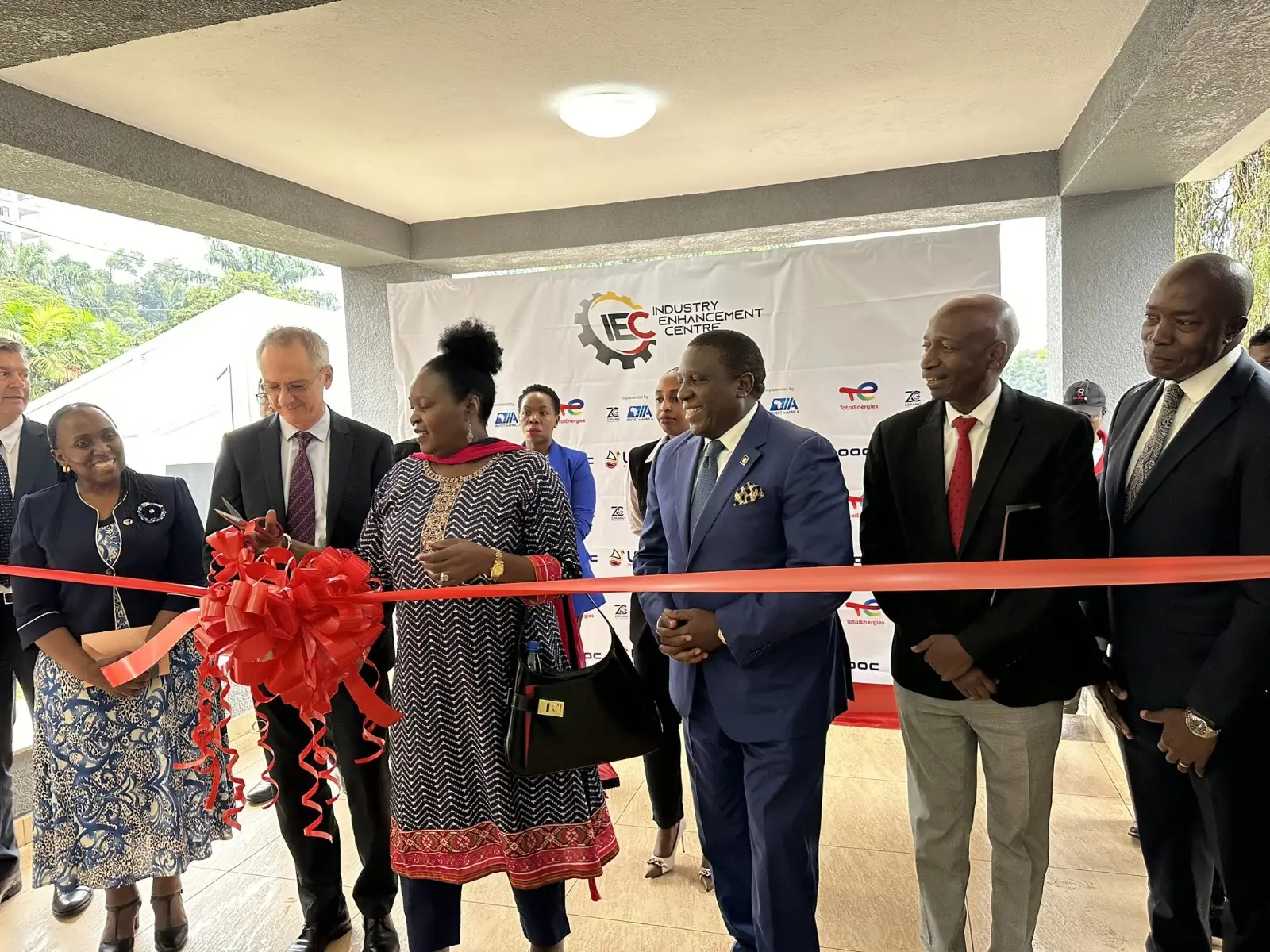
The IEC will provide information, business advisory, training, and capacity building services on the oil and gas sector, enabling Ugandan SMEs to meet the high standards of the sector.
Ugandan small and medium enterprises (SMEs) doing business in the oil and gas sector are set to benefit from the Industry Enhancement Center (IEC Uganda). The Minister of Energy and Mineral Development, Hon. Dr Ruth Nankabirwa launched the centre, recognising it as a crucial step in taking the sector forward. The centre is an avenue for SMEs to receive support so that they can ably meet the high standards of the oil and gas industry. The IEC will provide information, business advisory, training, and capacity building services on the oil and gas sector.
“The development of the IEC is in line with national content, which is one of the PAU’s key regulatory areas,” Mr Ernest Rubondo, the Executive Director of the Petroleum Authority of Uganda (PAU) said during the launch ceremony. He congratulated Total Energies EP Uganda (TEPU) on setting up the centre and expressed optimism that it will consolidate the achievements made towards national content and enterprise development and complement similar initiatives in Uganda’s private sector.
Mr Philippe Groueix, the General Manager, TEPU affirmed this.
“The launch of the IEC represents our commitment towards promoting national content and shared value for the sustainable development of Uganda’s oil and gas sector and the country at large. We believe contractor development support through the IEC is crucial in mitigating these challenges [inadequate knowledge of the sector, certification requirements, technical competencies, and financial modelling] hence boosting local businesses to successfully participate in the sector,” Mr Groueix said.
TEPU issued a three-year contract to a consortium comprising Zoramu Consulting Group, a Ugandan Company, and Invest in Africa, an international company to establish the IEC. Both companies have industry knowledge and experience in strengthening the capacities and skills of SMEs in similar contexts.
“We expect Zoramu, the Ugandan company in the Consortium to very ably provide an in-depth understanding of the capacity challenges that Ugandan companies face while investing in Africa, the international company in the consortium is expected to provide practical and workable solutions to solving these challenges,” Mr Rubondo said.
He added, “We look forward to the IEC which is starting with this main operation Centre in Kampala but with a plan for outreach centres in other selected areas especially in the Albertine Graben.”
The IEC has been more than 10 years in the making. Plans to set up started in 2013 when the joint venture partners (JVPs) of the country’s oil and gas projects and the Government of Uganda undertook an Industrial Baseline Survey (IBS). The IBS assessed the quantity and quality of goods and services that would be required compared to the existing capacity in the country.
One of the recommendations of the study was the setting up of an Industry Enhancement Center to support Ugandan companies to competitively position themselves. Both in the supply of goods and services to the country’s oil and gas sector, and to the other sectors of the country’s economy and subsequently to the export market
